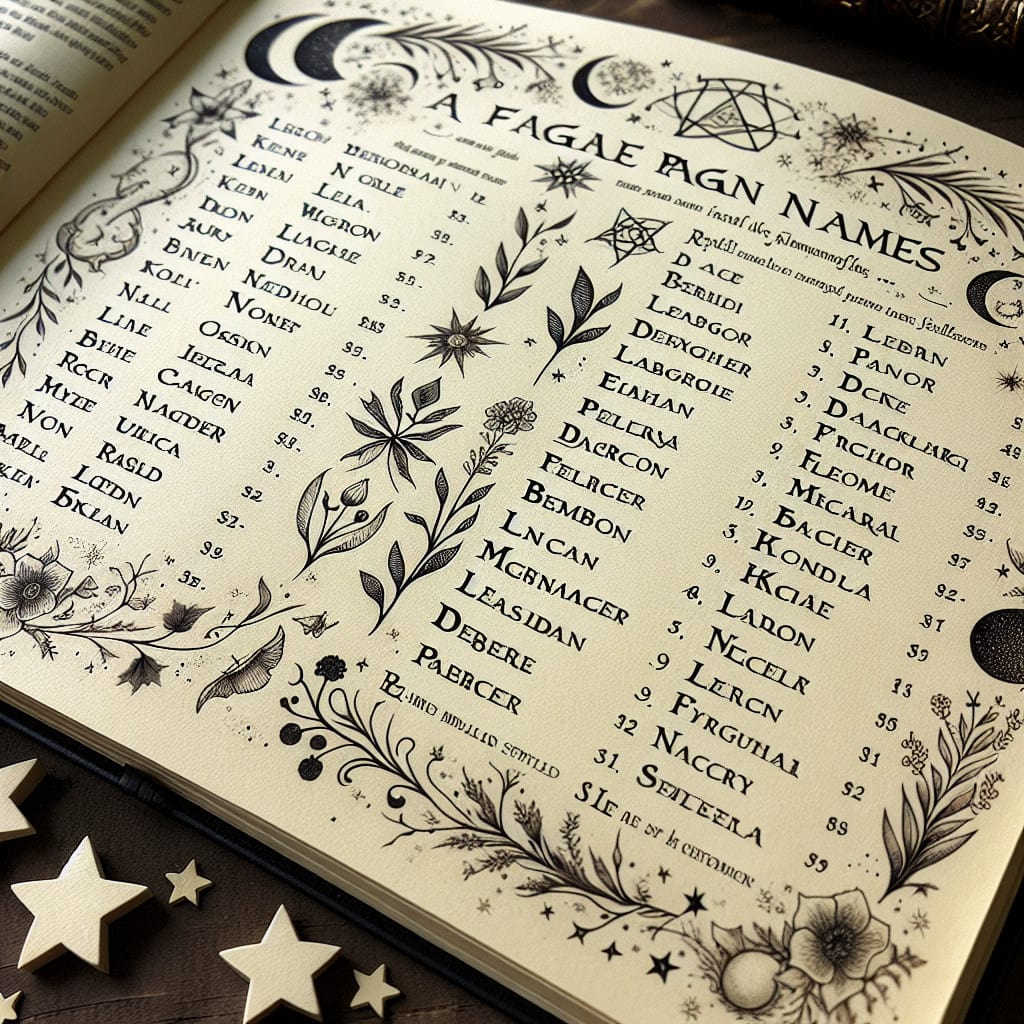The history of female names is a long and varied one, with each culture adding its own unique names and meanings. Pagan names for women have become increasingly popular in recent years, as more people seek to connect to their ancient roots. This article will explore a range of female pagan names and the meanings and origins behind them, from the Norse goddess Freya to the Celtic goddess Brigid. We will also look at how these powerful names can be used to empower and inspire the modern woman.
Pagan Female Names
Paganism is an ancient religion with a variety of gods and goddesses. It has been practiced since ancient times and its followers often choose to name their children after deities and other spiritual figures. While there are many different types of pagan names, female pagan names are particularly popular. This article will explore some of the most common and interesting female pagan names.
The Meaning Behind Pagan Names
Many pagan names are derived from the names of gods and goddesses within the pagan pantheon. These names often represent aspects of the divine, such as strength, wisdom, and beauty. Others are drawn from ancient mythologies or cultural traditions. For example, the name Freya is derived from the Norse goddess of love and beauty, while the name Maia is derived from the Greek goddess of spring.
Many pagan names also have symbolic meanings that reflect the beliefs of their followers. For example, the name Amaterasu is derived from the Japanese sun goddess, and it means “shining over heaven”. Meanwhile, the name Lilith is derived from the Hebrew night demon, and it means “of the night”.
Popular Pagan Female Names
There are many popular pagan female names to choose from. Some of the most popular include:
Freya: Freya is the Norse goddess of love and beauty. The name is derived from the Old Norse word “friðr”, which means “peace”.
Aphrodite: Aphrodite is the Greek goddess of love and beauty. The name is derived from the Greek word “aphros”, which means “sea foam”.
Artemis: Artemis is the Greek goddess of the hunt and the moon. The name is derived from the Greek word “artemes”, which means “safe”.
Lilith: Lilith is the Hebrew night demon. The name is derived from the Hebrew word “lilit”, which means “of the night”.
Maia: Maia is the Greek goddess of spring. The name is derived from the Greek word “maia”, which means “nurture”.
Amaterasu: Amaterasu is the Japanese sun goddess. The name is derived from the Japanese word “amateru”, which means “shining over heaven”.
Unique Pagan Female Names
In addition to the more popular pagan female names, there are many unique and interesting names that can be found within the pagan pantheon. Some of the more unique names include:
Brigid: Brigid is the Irish goddess of fire, healing and poetry. The name is derived from the Old Irish word “bríg”, which means “power”.
Ostara: Ostara is the Germanic goddess of spring. The name is derived from the Old High German word “ostar”, which means “of the east”.
Kali: Kali is the Hindu goddess of death and destruction. The name is derived from the Sanskrit word “kali”, which means “black”.
Morrigan: Morrigan is the Irish goddess of war and fate. The name is derived from the Old Irish word “mór-rígan”, which means “great queen”.
Nyx: Nyx is the Greek goddess of night. The name is derived from the Greek word “nux”, which means “night”.
Choosing the Right Pagan Name
When choosing a pagan name for your child, it is important to consider the implications of the name. It is important to think about the symbolism and meaning behind the name and how it might affect your child in the future. It is also important to consider the cultural and spiritual significance of the name.
In addition, some pagan names can be quite long and difficult to pronounce. It is important to consider how the name might sound when spoken aloud. It is also important to consider whether the name is easy to spell and pronounce.
Conclusion
Pagan female names are a popular choice for many families. These names often reflect the beliefs and values of their followers. There are a variety of popular and unique pagan female names to choose from, each with its own symbolism and meaning. When choosing a pagan name for your child, it is important to consider the implications of the name, as well as its cultural and spiritual significance.
In conclusion, it is evident that female pagan names are steeped in history and mythology, offering a unique and intriguing source of names for those seeking a name with a special meaning. The wide variety of names available and their connection to the ancient past can provide a powerful and meaningful way to honor a loved one or celebrate a special occasion. No matter the reason for seeking a unique name, female pagan names can be a beautiful and meaningful way to express oneself.





